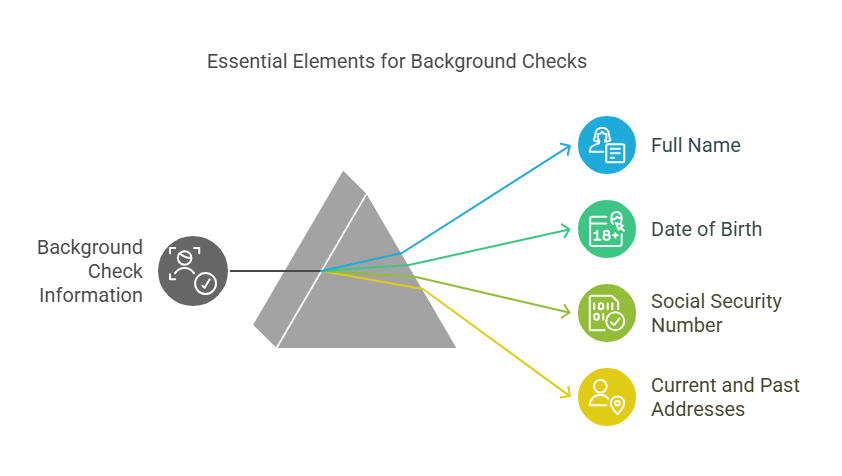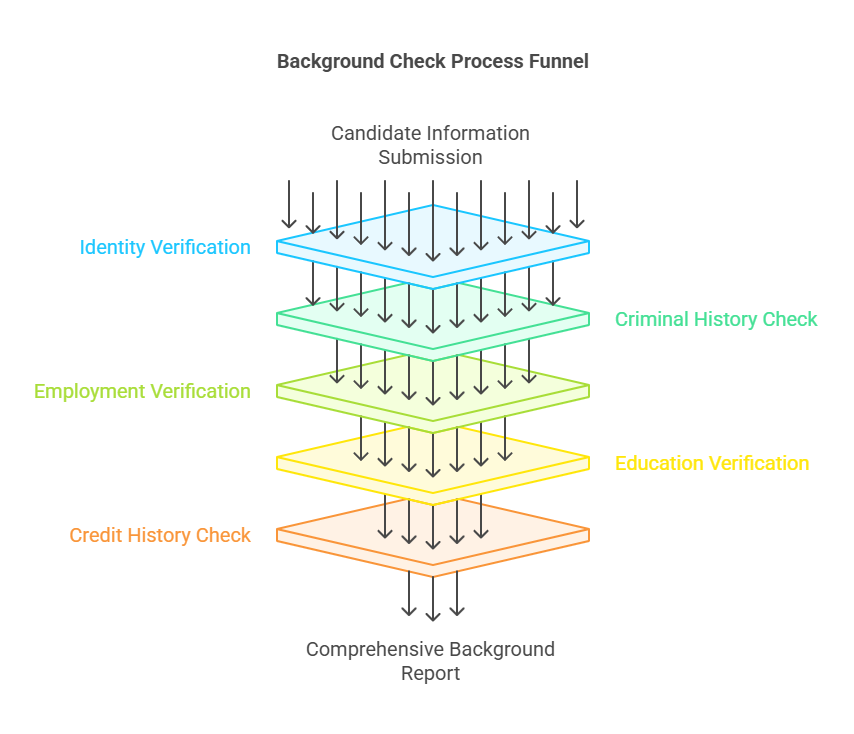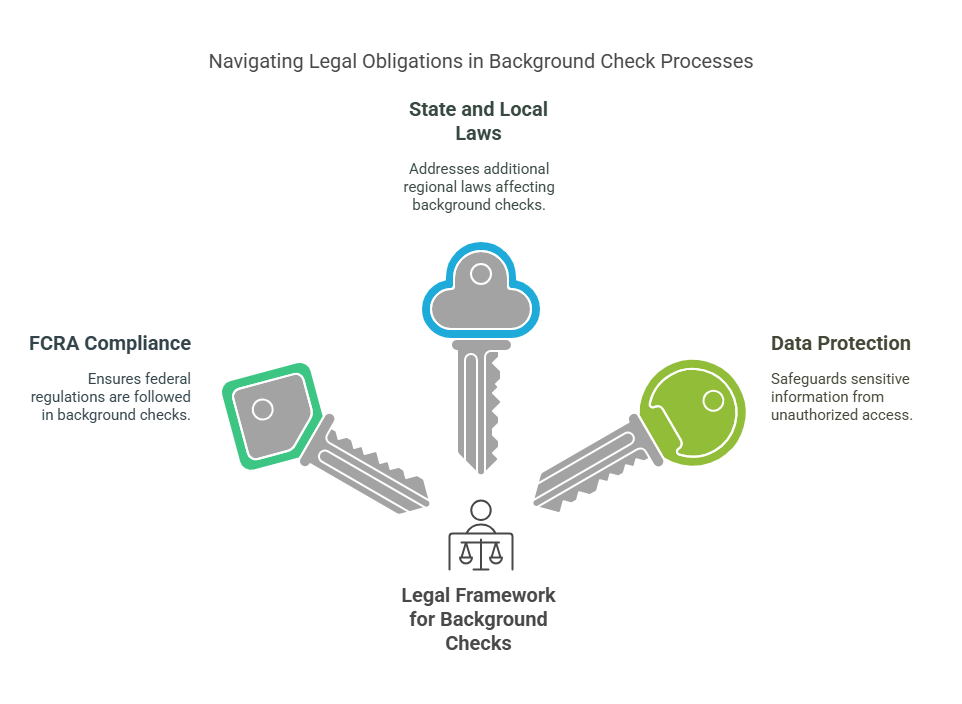Key Documents Needed for Background Checks

Understanding Background Checks and Required Information
Background checks are comprehensive reviews of an individual’s personal, professional, and criminal history, often conducted as part of employment, tenancy, or other verification processes. Employers, landlords, and organizations use background checks to make informed decisions, reduce risks, and ensure compliance with industry standards.
These checks verify various aspects of a person’s identity and history, including education, employment, criminal records, credit history, and more, depending on the purpose. They are essential for establishing trust and safeguarding the interests of businesses and communities.
Basic Information Required for Background Checks

To initiate a background check, certain details about the individual are necessary. These include:
- Full Name (including any aliases or maiden names):
Ensures accurate identification and prevents confusion with others of the same name. - Date of Birth (DOB):
Provides a key identifier to match records accurately. - Social Security Number (SSN):
Validates identity and enables searches in national databases. - Current and Past Addresses:
Helps locate jurisdiction-specific records, such as criminal or civil court documents.
Additional Details for Specific Types of Background Checks
Some checks require further information to tailor the search for specific purposes.
- Employment Verification:
- Names of previous employers.
- Dates of employment.
- Job titles and responsibilities.
- Education Verification:
- Names of institutions attended.
- Dates of attendance or graduation.
- Degrees earned or certifications received.
- Criminal Background Checks:
- Signed authorization forms, as required by law.
- Motor Vehicle Records (MVR) Checks:
- Driver’s license number.
- State of issuance.
Required Information for Different Types of Background Checks
| Type of Background Check | Required Information |
|---|---|
| Employment Verification | Employer names, dates of employment, job titles |
| Education Verification | School names, graduation dates, degrees or certifications |
| Criminal Background Check | Full name, DOB, SSN, authorization forms |
| Motor Vehicle Records (MVR) Check | Driver’s license number, state of issuance |
| Credit History Check | Full name, DOB, SSN |
| Tenant Screening | Full name, DOB, SSN, address history |
Why Accuracy and Completeness of Information Are Critical
The accuracy and completeness of the information provided play a significant role in ensuring efficient and reliable results. Missing or incorrect data can lead to:
- Delays in processing.
- Errors in matching records, resulting in false positives or negatives.
- Increased costs for re-verification.
To avoid these issues, individuals should double-check all details before submitting them for a background check.
The Process of Conducting a Background Check

Steps Involved in a Background Check
Conducting a background check involves several key steps to verify an individual’s identity and review their history accurately. Here’s an overview of the typical process:
- Submission of Required Documents and Consent Forms:
- The process begins with the individual providing all necessary details, including their full name, date of birth, Social Security Number (SSN), and other specific information.
- Employers or organizations must also obtain written consent from the individual, as required by laws like the Fair Credit Reporting Act (FCRA).
- Verification of Identity Through Official Records:
- The background check provider validates the individual’s identity using official records such as government-issued IDs or SSN databases.
- This step ensures that the search is tied to the correct individual.
- Processing of Background Check Types:
Depending on the purpose, different aspects of an individual’s history may be reviewed:- Criminal History Checks: Search databases for felonies, misdemeanors, and pending cases.
- Employment History Verification: Contact past employers to confirm roles, dates, and responsibilities.
- Education Verification: Confirm degrees, certifications, and attendance at listed institutions.
- Motor Vehicle Records (MVR): Review driving history, including violations and license status.
- Credit History Checks: Examine financial records, particularly for roles involving financial management.
- Report Compilation and Delivery:
- After completing the checks, the background screening service compiles a detailed report.
- The results are shared with the requesting party (e.g., employer or landlord), ensuring compliance with privacy laws.
How Long Do Background Checks Take?
The time required to complete a background check depends on the type and complexity of the search:
- Instant Checks: Some services, like basic identity or credit checks, can be completed within minutes or hours.
- Criminal History Checks: These typically take 1–3 business days but may vary based on jurisdiction and database access.
- Employment and Education Verifications: These can take 3–7 business days, depending on the responsiveness of former employers and institutions.
- Comprehensive Background Checks: When multiple layers of verification are involved, the process may take up to 2 weeks.
Common Challenges and How to Avoid Them
Background checks may face delays or inaccuracies due to:
- Incomplete or Inaccurate Information:
Missing details or typos can lead to incorrect matches or failed verifications.- Solution: Double-check all information before submission.
- Delayed Responses from Third Parties:
Employers, schools, or courts may take time to provide requested records.- Solution: Provide accurate contact information and follow up when necessary.
- Legal Compliance Issues:
Failing to meet legal requirements, such as obtaining consent, can halt the process.- Solution: Partner with a professional background screening service that ensures compliance.
Benefits of Using a Professional Service
Partnering with a professional background screening provider, such as Exact Background Checks, ensures efficient, accurate, and legally compliant results. Key benefits include:
- Expertise in Background Screening:
Professional services have access to extensive databases and experienced personnel who can conduct thorough investigations. - Faster Turnaround Times:
Advanced tools and streamlined processes enable quicker completion of checks, even for complex cases. - Compliance with Legal Standards:
Professional services stay up-to-date on laws like the FCRA, ensuring that all processes adhere to legal requirements. - Confidentiality and Security:
These providers use secure systems to protect sensitive information, maintaining privacy throughout the process.
Tips for Individuals Preparing for a Background Check
- Review Your Personal Records:
Ensure that your resume, employment history, and education details are accurate and match official records. - Check Your Criminal History (if applicable):
Obtain a copy of your criminal record, if available, to identify any errors or discrepancies. - Prepare Relevant Documents:
Gather documents like past pay stubs, diplomas, or licenses to streamline verification. - Understand Your Rights:
Familiarize yourself with your rights under the FCRA, including the ability to dispute inaccuracies in the report.




